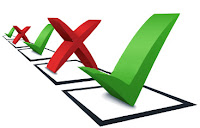Helping Aspergers and HFA Children to Control Their Anger
"I'm in desperate need of some strategies to deal with my Aspergers (high-functioning) son's anger. When he starts to stew about something, it's not long before all hell breaks loose. Any suggestions?!"
References—
• American Psychiatric Association. (1994). Diagnostic and Statistical Manual of Mental Health
Disorders. 4th ed. Washington, DC: American Psychiatric Association. 1994.
• Anger Management for Substance Abuse and Mental Health Clients
• Barkley, R.A. (1997). Defiant Children: A Clinician’s Manual for Assessment and Parent
Training. 2nd ed. New York: Guilford Press.
• Beck, R., and Fernandez, E. (1998). Cognitive behavioral therapy in the treatment of anger: A
meta-analysis. Cognitive Therapy and Research, 22, 63-74.
• Berkowitz, L. (1970). Experimental investigations of hostility catharsis. Journal of Consulting
and Clinical Psychology, 35, 1-7.
• Carroll, K.M.; Rounsaville, B.J.; and Gawin, F.H. (1991). A comparative trial of psychotherapies
for ambulatory cocaine abusers: Relapse prevention and interpersonal psychotherapy.
American Journal of Drug and Alcohol Abuse, 17, 229-247.
• Clark, H.W.; Reilly, P.M.; Shopshire, M.S.; and Campbell, T.A. (1996). Anger management treat
ment in culturally diverse substance abuse patients. In: NIDA Research Monograph: Problems
of Drug Dependence, Proceedings of the 58th Annual Scientific Meeting, College on Problems
of Drug Dependence. Rockville, MD: National Institute on Drug Abuse.
• Deffenbacher, J.L. (1996). Cognitive behavioral approaches to anger reduction. In: Dobson,
K.S., and Craig, K.D. (Eds.), Advances in Cognitive Behavioral Therapy (pp. 31-62). Thousand
Oaks, CA: Sage Publications.
• Deffenbacher, J.L. (August 1999). Anger reduction interventions as empirically supported inter
vention programs. Paper presented at the 107th Annual Convention of the American
Psychological Association, Boston.
• Dobson, K.S. (1989). A meta-analysis of the efficacy of cognitive therapy for depression.
Journal of Consulting and Clinical Psychology, 57, 414-419.
• Ducharme, J.M.; Atkinson, L.; and Poulton, L. (2000). Success-based, noncoercive treatment of
oppositional behavior in children from violent homes. Journal of the American Academy of
Child and Adolescent Psychiatry, 39(8), 995-1004.
• Edmondson, C.B., and Conger, J.C. (1996). A review of treatment efficacy for individuals with
anger problems: Conceptual, assessment, and methodological issues. Clinical Psychology
Review, 10, 251-275.
• Ellis, A. (1979). Rational-emotive therapy. In: Corsini, R. (Ed.), Current Psychotherapies (pp.
185-229). Itasca, Il: Peacock Publishers.
• Ellis, A., and Harper, R.A. (1975). A New Guide to Rational Living. N. Hollywood, CA: Wilshire
Books.
• Heimberg, R.G., and Juster, H.R. (1994). Treatment of social phobia in cognitive behavioral
groups. Journal of Clinical Psychology, 55, 38-46.
• Hoyt, M.F. (1993). Group therapy in an HMO. HMO Practice, 7, 127-132.
• Juster, H.R., and Heimberg, R.G. (1995). Social phobia: Longitudinal course and long-term out
come of cognitive behavioral treatment. Psychiatric Clinics of North America, 18, 821-842.
• Maude-Griffin, P.M.; Hohenstein, J.M.; Humfleet, G.L.; Reilly, P.M.; Tusel, D.J.; and Hall, S.M.
(1998). Superior efficacy of cognitive behavioral therapy for urban crack cocaine abusers: Main
and matching effects. Journal of Consulting and Clinical Psychology, 66, 832-837.
• Murray, E. (1985). Coping and anger. In: Field, T., McCabe, P., and Schneiderman, N. (Eds.),
Stress and Coping (pp. 243-261). Hillsdale, NJ: Erlbaum.
• Piper, W.E., and Joyce, A.S. (1996). A consideration of factors influencing the utilization of time-
limited, short-term group therapy. International Journal of Group Psychotherapy, 46, 311-328.
• Reilly, P.M., and Grusznski, R. (1984). A structured didactic model for men for controlling family
violence. International Journal of Offender Therapy and Comparative Criminology, 28, 223-235.
• Reilly, P.M., and Shopshire, M.S. (2000). Anger management group treatment for cocaine
dependence: Preliminary outcomes. American Journal of Drug and Alcohol Abuse, 26(2),
161-177.
• Reilly, P.M.; Clark, H.W.; Shopshire, M.S.; and Delucchi, K.L. (1995). Anger management, post-
traumatic stress disorder, and substance abuse. In: NIDA Research Monograph: Problems of
Drug Dependence, Proceedings of the 57th Annual Scientific Meeting (p. 322), College on
Problems of Drug Dependence. Rockville, MD: National Institute on Drug Abuse
• Reilly, P.M.; Shopshire, M.S.; and Clark, H.W. (1999). Anger management treatment for cocaine
dependent clients. In: NIDA Research Monograph: Problems of Drug Dependence, Proceedings
of the 60th Annual Scientific Meeting (p. 167), College on Problems of Drug Dependence.
Rockville, MD: National Institute on Drug Abuse.
• Reilly, P.M.; Shopshire, M.S.; Clark, H.W.; Campbell, T.A.; Ouaou, R.H.; and Llanes, S. (1996).
Substance use associated with decreased anger across a 12-week cognitive-behavioral anger
management treatment. In: NIDA Research Monograph: Problems of Drug Dependence,
Proceedings of the 58th Annual Scientific Meeting, College on Problems of Drug Dependence.
Rockville, MD: National Institute on Drug Abuse.
• Reilly, P.M.; Shopshire, M.S.; Durazzo, T.C.; and Campbell, T.A. (2002). Anger Management for
Substance Abuse and Mental Health Clients: Participant Workbook. Rockville, MD: Center for
Substance Abuse Treatment.
• Shopshire, M.S.; Reilly, P.M.; and Ouaou, R.H. (1996). Anger management strategies associat
ed with decreased anger in substance abuse clients. In: NIDA Research Monograph: Problems
of Drug Dependence, Proceedings of the 58th Annual Scientific Meeting (p. 226), College on
Problems of Drug Dependence. Rockville, MD: National Institute on Drug Abuse.
• Smokowski, P.R., and Wodarski, J.S. (1996). Cognitive behavioral group and family treatment of
cocaine addiction. In: The Hatherleigh Guide to Treating Substance Abuse, Part 1. (pp. 171-
189). New York: Hatherleigh Press.
• Straus, M.; Gelles, R.; and Steinmetz, S. (1980). Behind Closed Doors: Violence in the
American Family. Garden City, NY: Doubleday.
• Trafate, R.C. (1995). Evaluation of treatment strategies for adult anger disorders. In:
Kassinove, H. (Ed.), Anger Disorders: Definition, Diagnosis, and Treatment (pp. 109-130).
Washington, DC: Taylor and Francis.
• Van Balkom, A.J.L.M.; Van Oppen, P.; Vermeulen, A.W.A.; Van Dyck, R.; Nauta, M.C.E.; and Vorst,
H.C.M. (1994). A meta-analysis on the treatment of obsessive compulsive disorder: A compari
son of antidepressants, behavior, and cognitive therapy. Clinical Psychology Review, 14, 359-
381.
• Walker, L. (1979). The Battered Woman. New York: Harper & Row.
• Webster-Stratton, C., and Hammond, M. (1997). Treating children with early-onset conduct
problems: A comparison of child and parent training interventions. Journal of Consulting and
Clinical Psychology, 65(1), 93-109.
• Yalom, I.D. (1995). The Theory and Practice of Group Psychotherapy. 4th ed. New York: Basic
Books, Inc.
• American Psychiatric Association. (1994). Diagnostic and Statistical Manual of Mental Health
Disorders. 4th ed. Washington, DC: American Psychiatric Association. 1994.
• Anger Management for Substance Abuse and Mental Health Clients
• Barkley, R.A. (1997). Defiant Children: A Clinician’s Manual for Assessment and Parent
Training. 2nd ed. New York: Guilford Press.
• Beck, R., and Fernandez, E. (1998). Cognitive behavioral therapy in the treatment of anger: A
meta-analysis. Cognitive Therapy and Research, 22, 63-74.
• Berkowitz, L. (1970). Experimental investigations of hostility catharsis. Journal of Consulting
and Clinical Psychology, 35, 1-7.
• Carroll, K.M.; Rounsaville, B.J.; and Gawin, F.H. (1991). A comparative trial of psychotherapies
for ambulatory cocaine abusers: Relapse prevention and interpersonal psychotherapy.
American Journal of Drug and Alcohol Abuse, 17, 229-247.
• Clark, H.W.; Reilly, P.M.; Shopshire, M.S.; and Campbell, T.A. (1996). Anger management treat
ment in culturally diverse substance abuse patients. In: NIDA Research Monograph: Problems
of Drug Dependence, Proceedings of the 58th Annual Scientific Meeting, College on Problems
of Drug Dependence. Rockville, MD: National Institute on Drug Abuse.
• Deffenbacher, J.L. (1996). Cognitive behavioral approaches to anger reduction. In: Dobson,
K.S., and Craig, K.D. (Eds.), Advances in Cognitive Behavioral Therapy (pp. 31-62). Thousand
Oaks, CA: Sage Publications.
• Deffenbacher, J.L. (August 1999). Anger reduction interventions as empirically supported inter
vention programs. Paper presented at the 107th Annual Convention of the American
Psychological Association, Boston.
• Dobson, K.S. (1989). A meta-analysis of the efficacy of cognitive therapy for depression.
Journal of Consulting and Clinical Psychology, 57, 414-419.
• Ducharme, J.M.; Atkinson, L.; and Poulton, L. (2000). Success-based, noncoercive treatment of
oppositional behavior in children from violent homes. Journal of the American Academy of
Child and Adolescent Psychiatry, 39(8), 995-1004.
• Edmondson, C.B., and Conger, J.C. (1996). A review of treatment efficacy for individuals with
anger problems: Conceptual, assessment, and methodological issues. Clinical Psychology
Review, 10, 251-275.
• Ellis, A. (1979). Rational-emotive therapy. In: Corsini, R. (Ed.), Current Psychotherapies (pp.
185-229). Itasca, Il: Peacock Publishers.
• Ellis, A., and Harper, R.A. (1975). A New Guide to Rational Living. N. Hollywood, CA: Wilshire
Books.
• Heimberg, R.G., and Juster, H.R. (1994). Treatment of social phobia in cognitive behavioral
groups. Journal of Clinical Psychology, 55, 38-46.
• Hoyt, M.F. (1993). Group therapy in an HMO. HMO Practice, 7, 127-132.
• Juster, H.R., and Heimberg, R.G. (1995). Social phobia: Longitudinal course and long-term out
come of cognitive behavioral treatment. Psychiatric Clinics of North America, 18, 821-842.
• Maude-Griffin, P.M.; Hohenstein, J.M.; Humfleet, G.L.; Reilly, P.M.; Tusel, D.J.; and Hall, S.M.
(1998). Superior efficacy of cognitive behavioral therapy for urban crack cocaine abusers: Main
and matching effects. Journal of Consulting and Clinical Psychology, 66, 832-837.
• Murray, E. (1985). Coping and anger. In: Field, T., McCabe, P., and Schneiderman, N. (Eds.),
Stress and Coping (pp. 243-261). Hillsdale, NJ: Erlbaum.
• Piper, W.E., and Joyce, A.S. (1996). A consideration of factors influencing the utilization of time-
limited, short-term group therapy. International Journal of Group Psychotherapy, 46, 311-328.
• Reilly, P.M., and Grusznski, R. (1984). A structured didactic model for men for controlling family
violence. International Journal of Offender Therapy and Comparative Criminology, 28, 223-235.
• Reilly, P.M., and Shopshire, M.S. (2000). Anger management group treatment for cocaine
dependence: Preliminary outcomes. American Journal of Drug and Alcohol Abuse, 26(2),
161-177.
• Reilly, P.M.; Clark, H.W.; Shopshire, M.S.; and Delucchi, K.L. (1995). Anger management, post-
traumatic stress disorder, and substance abuse. In: NIDA Research Monograph: Problems of
Drug Dependence, Proceedings of the 57th Annual Scientific Meeting (p. 322), College on
Problems of Drug Dependence. Rockville, MD: National Institute on Drug Abuse
• Reilly, P.M.; Shopshire, M.S.; and Clark, H.W. (1999). Anger management treatment for cocaine
dependent clients. In: NIDA Research Monograph: Problems of Drug Dependence, Proceedings
of the 60th Annual Scientific Meeting (p. 167), College on Problems of Drug Dependence.
Rockville, MD: National Institute on Drug Abuse.
• Reilly, P.M.; Shopshire, M.S.; Clark, H.W.; Campbell, T.A.; Ouaou, R.H.; and Llanes, S. (1996).
Substance use associated with decreased anger across a 12-week cognitive-behavioral anger
management treatment. In: NIDA Research Monograph: Problems of Drug Dependence,
Proceedings of the 58th Annual Scientific Meeting, College on Problems of Drug Dependence.
Rockville, MD: National Institute on Drug Abuse.
• Reilly, P.M.; Shopshire, M.S.; Durazzo, T.C.; and Campbell, T.A. (2002). Anger Management for
Substance Abuse and Mental Health Clients: Participant Workbook. Rockville, MD: Center for
Substance Abuse Treatment.
• Shopshire, M.S.; Reilly, P.M.; and Ouaou, R.H. (1996). Anger management strategies associat
ed with decreased anger in substance abuse clients. In: NIDA Research Monograph: Problems
of Drug Dependence, Proceedings of the 58th Annual Scientific Meeting (p. 226), College on
Problems of Drug Dependence. Rockville, MD: National Institute on Drug Abuse.
• Smokowski, P.R., and Wodarski, J.S. (1996). Cognitive behavioral group and family treatment of
cocaine addiction. In: The Hatherleigh Guide to Treating Substance Abuse, Part 1. (pp. 171-
189). New York: Hatherleigh Press.
• Straus, M.; Gelles, R.; and Steinmetz, S. (1980). Behind Closed Doors: Violence in the
American Family. Garden City, NY: Doubleday.
• Trafate, R.C. (1995). Evaluation of treatment strategies for adult anger disorders. In:
Kassinove, H. (Ed.), Anger Disorders: Definition, Diagnosis, and Treatment (pp. 109-130).
Washington, DC: Taylor and Francis.
• Van Balkom, A.J.L.M.; Van Oppen, P.; Vermeulen, A.W.A.; Van Dyck, R.; Nauta, M.C.E.; and Vorst,
H.C.M. (1994). A meta-analysis on the treatment of obsessive compulsive disorder: A compari
son of antidepressants, behavior, and cognitive therapy. Clinical Psychology Review, 14, 359-
381.
• Walker, L. (1979). The Battered Woman. New York: Harper & Row.
• Webster-Stratton, C., and Hammond, M. (1997). Treating children with early-onset conduct
problems: A comparison of child and parent training interventions. Journal of Consulting and
Clinical Psychology, 65(1), 93-109.
• Yalom, I.D. (1995). The Theory and Practice of Group Psychotherapy. 4th ed. New York: Basic
Books, Inc.


